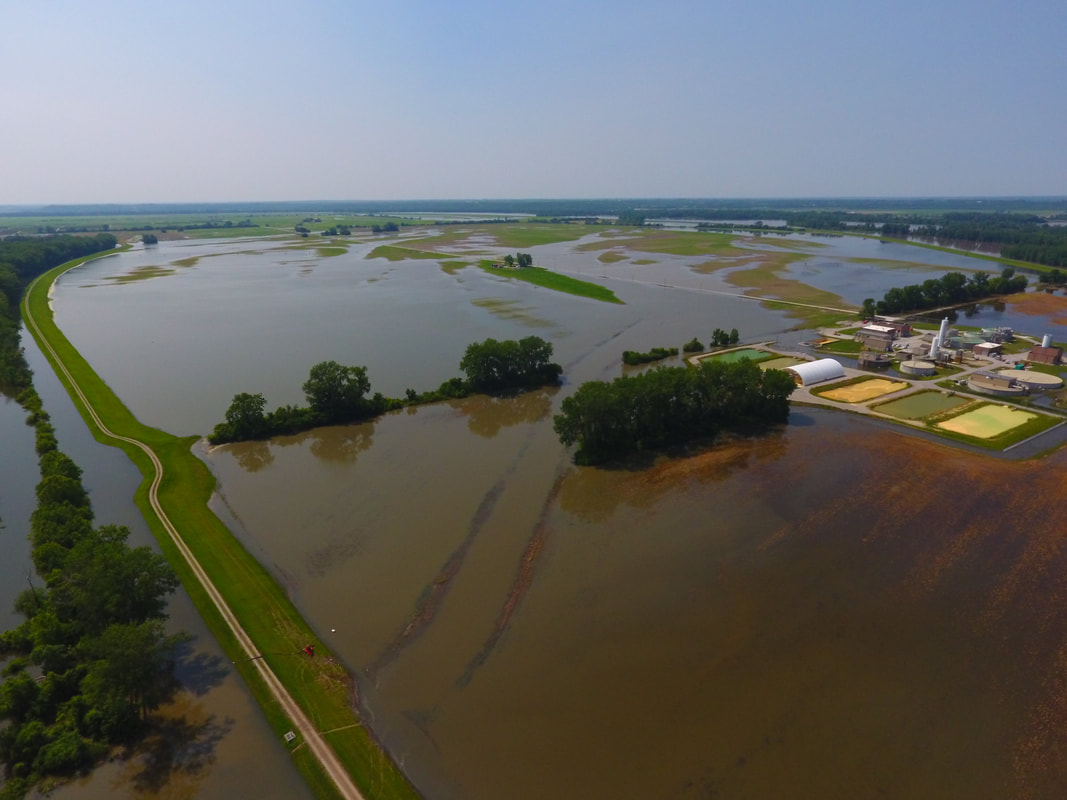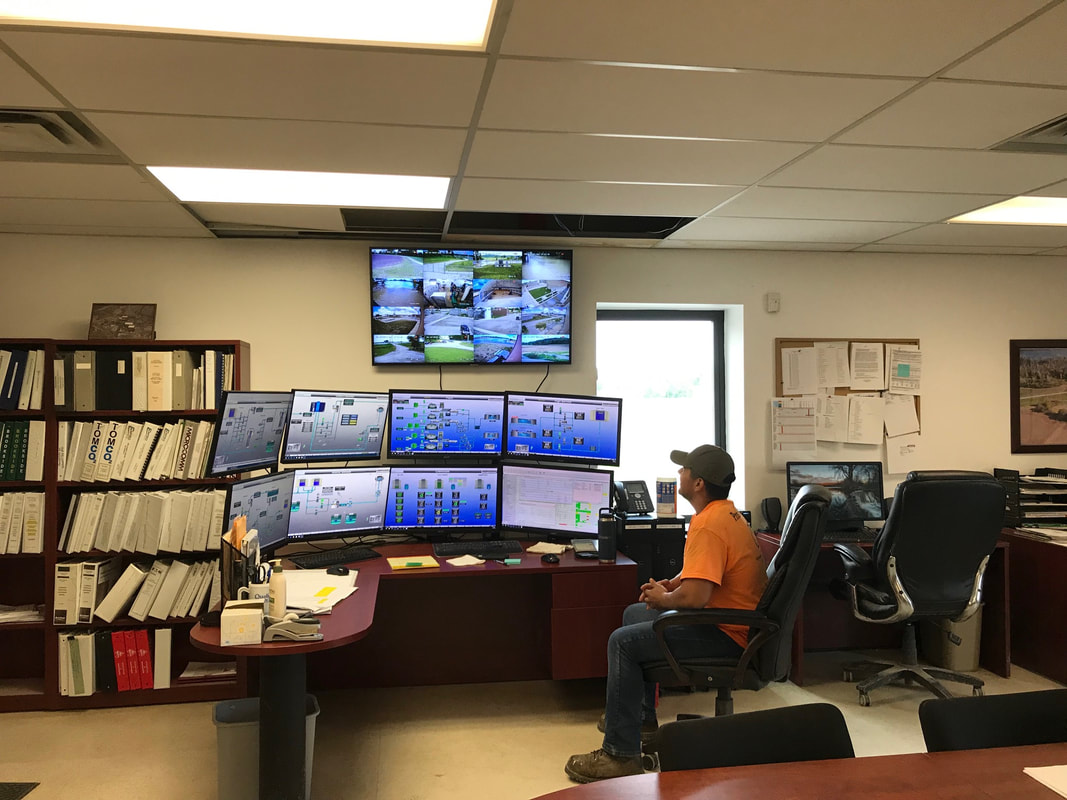|
|
The one lane gravel road leading to the Tri-County Water Authority (TCWA) in Independence is a bit unnerving, with flood waters banked up on either side of the road. TCWA provides water for much of Grain Valley and Blue Springs as a part of 15 local communities that rely on the facility for water treatment. The facility is located just north of Atherton, MO on the south side of the Missouri River. Due to their location, TCWA is very susceptible to flooding from the Missouri. Pictures don’t quite do justice to the extent of the flooding the facility is facing and the herculean efforts the staff continues to make to ensure safe drinking water is delivered to residents. “The last several weeks have been very busy for us, acquiring rental pumps, getting contractors in to help us set up those pumps. We have two people who basically spend their day going from pump to pump, refilling them with diesel fuel to keep them going. So far in June, we’ve already pumped almost 3,000 gallons of diesel fuel in those pumps to keep them going,” TCWA General Manager John Overstreet said. “I’ve run some rough numbers, and we estimate we have 175-190 million gallons of water stored up here, that we’d rather see out in the river,” Overstreet said. “The only way to get it out of here is to pump it.” According to Grain Valley City Administrator Ryan Hunt, city residents and businesses use between 750,000-1,000,000 gallons per day in Grain Valley. Part of that usage is supplied by the City of Independence and the rest is from TCWA. “Make no mistake, this entire plant would be under water if it wasn’t for the 24/7 efforts by TCWA staff to pump water back across the levy. On top of that amazing accomplishment, they each still have their ‘day jobs’ of running a treatment facility and are continually repairing pumps and wells as they go down and are impacted by the flooding. Each member of the team is truly doing the job of 3 fulltime staff members,” Hunt said. There are 12 full time and two part-time staff members at TCWA, who manage all aspects of the operation and now add flood management to their job duties. Overstreet has been in his position since 1994, arriving just after the flood of 1993. “I missed the 1993 flood, but I’ve been here for there the 1995, 1999, 2007, and 2011 flood. We’ve seen some bad ones, but this is neck and neck with the ’93 flood,” Overstreet said. “Recent history shows that this is going to be more of the norm than the oddity. We’re doing some things in this situation to help eliminate future issues and will likely be looking at some capital improvements we can do to minimize the impact to our operation,” Overstreet said. While flood waters have receded a bit, Overstreet stated that it could be August before waters are below flood stage. Meanwhile, TCWA staff will continue pumping out flood waters in addition to their daily work. “I have always known he (Overstreet) was a good man with a strong work ethic. I now have a whole new level of respect for him and his team. They have been working around the clock for a over a month to ensure that the flooding doesn’t overtake critical treatment facilities. Because of their sacrifice and commitment to the TCWA owners, our residents are able to turn on the tap and have clean, fresh water without any idea of what it took to deliver this water or the tremendous amount of work that is currently ongoing to keep our supply completely uninterrupted,” Hunt said. Drone footage shows the Tri-County Water Authority (TCWA) facility completely surrounded by flood waters. Ongoing efforts by TCWA staff have ensured the facility’s operations are not impacted. Photo credit: John Overstreet TWCA employee AJ Montoya monitors a series of video feeds from sites across the facility’s service area. From this station, operators control the treatment plant as well as pump stations in Grain Valley, Lee’s Summit, Grandview, outside of Pleasant Hill and Harrisonville. Photo credit: Valley News staff
Comments are closed.
|
Categories
All
Archives
July 2024
|
Grain Valley NewsGrain Valley News is a free community news source published weekly online. |
Contact Us |



 RSS Feed
RSS Feed
